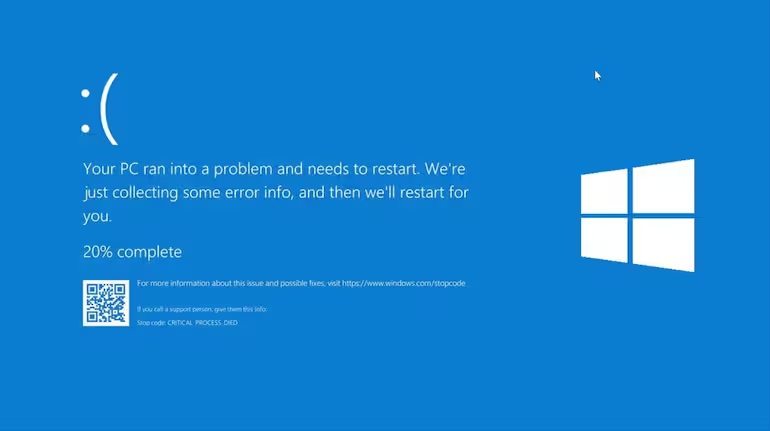The most important lesson from the global Microsoft crash is that businesses must diversify their IT resources and implement strong backup plans to ensure operational continuity during unexpected service disruptions.
Introduction
On July 19, 2024, the tech world was shaken when Microsoft services went down globally. This unexpected crash had widespread effects, disrupting everything from flights to banking. Let’s dive into what happened, its impact, and what we can learn to prevent such chaos in the future.
The Incident
Microsoft, a giant in the tech industry, faced a massive global outage that left businesses and individuals scrambling. The crash, possibly due to a cybersecurity breach or technical glitch, took down 95% of their services. This had a domino effect on critical sectors like airports, hospitals, and digital payments.

Impact on Global Operations
The outage created a ripple effect, causing significant disruptions worldwide:
- Airports: Over 4,295 flights were affected globally, with 200 in India alone facing delays. Passengers had to deal with long queues at check-ins due to system failures.
- Banking and Digital Payments: Banks and digital payment systems relying on Microsoft services experienced significant slowdowns and interruptions.
- Healthcare: Hospitals using cloud services for patient data and operations faced major challenges, potentially putting patient care at risk.
Response and Recovery
Efforts to restore services were swift, but the incident highlighted the need for robust backup systems and alternative solutions. Many organizations had to switch to manual operations, leading to delays and increased workloads. Microsoft worked tirelessly to fix the issues and get everything back to normal.
Expert Insights
Cybersecurity experts emphasize the importance of having a “Plan B.” Relying solely on one service provider is risky. Diversifying IT infrastructure can help mitigate such risks. This incident also underscores the need for enhanced cybersecurity measures to prevent future disruptions.
Lessons Learned
- Diversify IT Resources: Don’t put all your eggs in one basket. Using multiple service providers can help keep things running smoothly during outages.
- Strong Backup Plans: Robust backup systems are essential to maintain operations when primary services fail.
- Enhanced Cybersecurity: Investing in advanced cybersecurity is crucial to safeguard against potential threats.
Conclusion
The global Microsoft crash on July 19, 2024, is a wake-up call about the vulnerabilities in our digital infrastructure. It highlights the need for diversified IT strategies and solid backup plans to ensure business continuity. Moving forward, organizations must prioritize these areas to avoid similar disruptions.
Want more Update!
If you’re looking to develop a website and need expert guidance, get a free 30-minute consultation with Compalgo Labs. For more updates and to connect with us, follow us on LinkedIn.
Stay updated on the latest in IT infrastructure and cybersecurity. Stay Tune to our blogpost for reading more blogs. Last time facebok, Instagram crashed want to know why? Click here.




